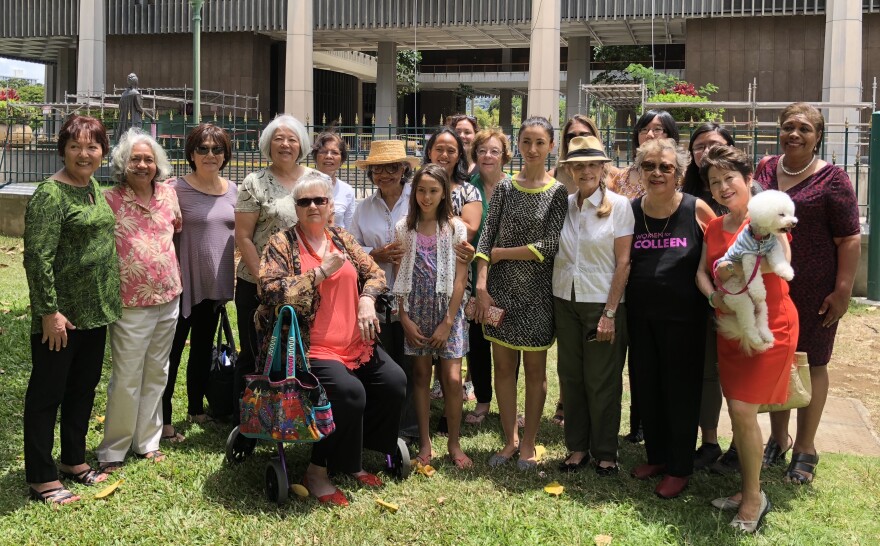2018 marks the re-emergence of the women’s movement for social and economic justice. In Hawai’i, that conversation is making its way across traditional generational and political lines.

The advancement of women in Hawai’i cannot be achieved without economic and political parity. That, according to Congressional candidate Beth Fukumoto who moderated a roundtable discussion on women’s issues with her fellow millennials, the generation born after 1981.
“I was really looking forward to this election year and this excitement across the country for women and for female candidates and one of my frustrations has been not talking about these issues enough, locally. In Hawai’i, women hold 30 percent of political power, which is a lot compared to other states but it’s not equal. Is 30 percent enough?”

Many millennials believe Hawai’i women will not stage rallies and protests to achieve social or economic justice but will be more inclined to turn the conversation into a movement. State House Majority Leader Della Au Belatti is a Generation X’er, born between 1965 and 1981. She wants the unfair standards in politics to stop.
“When a male candidate points out flaws in an opponent’s work, that’s just fine. He’s viewed as strong, passionate and confident. But, when strong words come from a woman, even one with decades of experience, it’s described as too critical. This clear double standard must stop.”

Congresswoman Colleen Hanabusa is running for Governor. She’s from the Boomer generation, born between 1946 and 1964, that lived through an earlier women’s movement.
“The movement is very critical because the movement tells everyone that women are equal. But I think that Hawai’i will show everyone and we will, in fact, elect a first Asian woman governor. Not only in Hawai’i but in the United States. And, if there’s any place that it’s gonna be done, it’s gonna be done in Hawai’i.”
Honolulu City Councilmember Ann Kobayashi supports Hanabusa and is from the Traditionalist generation born before 1945.

“We’ve been fighting for equality too. I mean, we finally get the right to vote. Finally, we’re able to buy a car in our name and get a credit card, you know, under a woman’s name. But, finding equality and breaking that glass ceiling, there’s a lot to be done.”
Kobayashi says positive change for women in Hawai’i can only be attained if women from all generations and walks of life come together.
“And I hope we can do that because we’re all in there for the right cause and for the same cause.”
Women in Hawai’i make up 52 percent of all registered voters in the state and outnumber men by more than 33-thousand. Wayne Yoshioka, HPR News.




